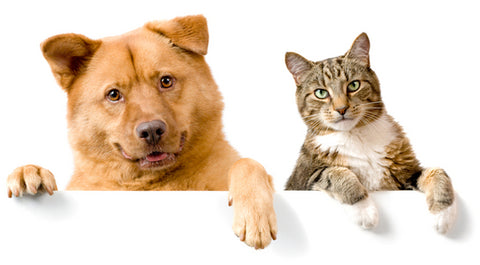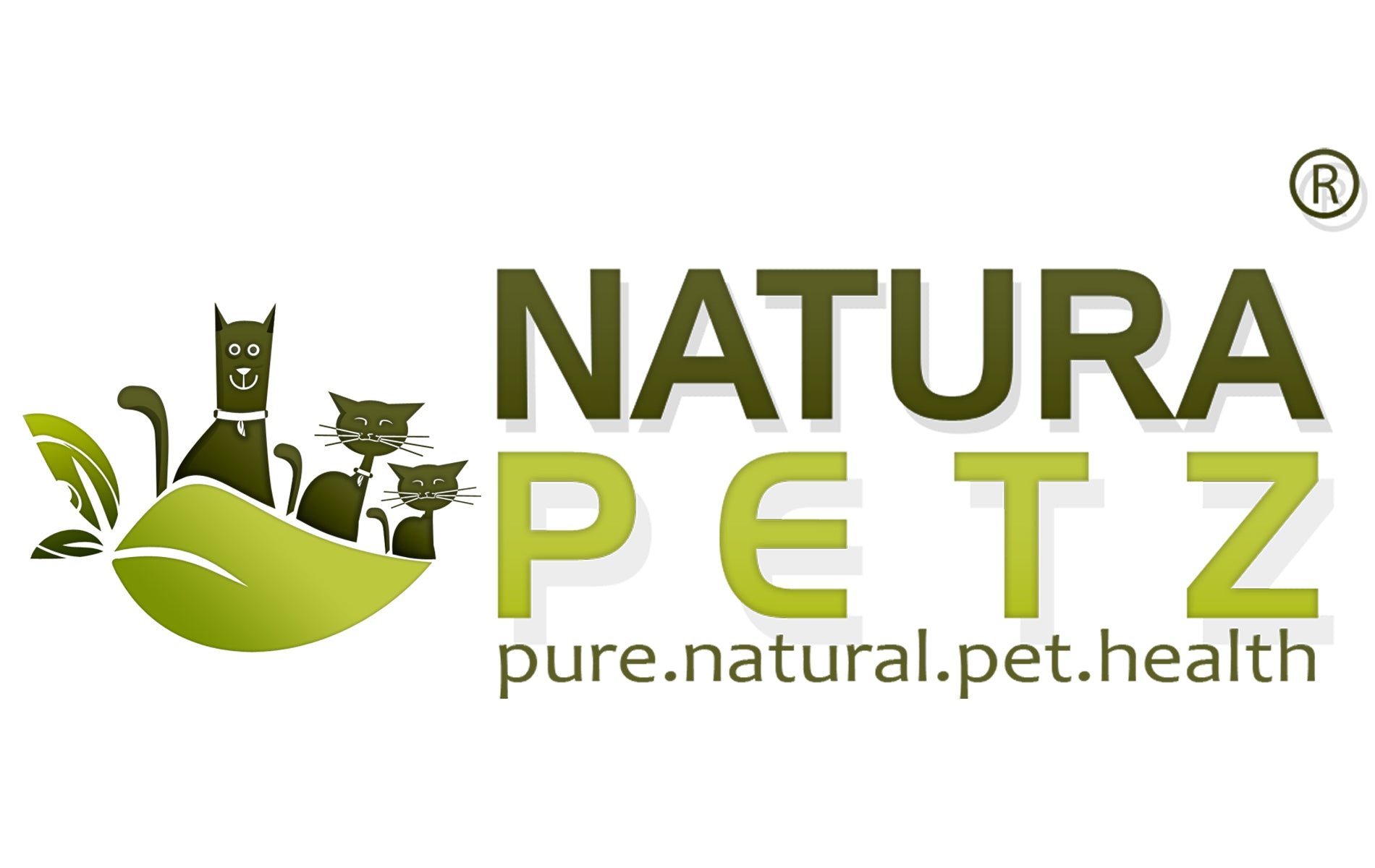Detoxifying Your Pet Part 1
You may have heard about the importance of detoxifying or cleansing your pet, not only to reduce unhealthy chemicals in the body, but also the important role it plays in disease prevention.

This is the first in a three-part series that will explain how your pet accumulates toxins on a daily basis, why it’s beneficial to detoxify your pet for short and long term health as well as how you can detoxify your pet safely.
We'll also conclude with a fourth article that highlights the importance of supporting the immune system once detoxification has occurred.
Topics covered in Part 1 include:
- Has my pet been exposed to toxicities? How does it happen?
- Common reasons that contribute to your pet’s toxic load
- Practical and easy ways to lower your pet's toxic load
- What supplements do holistic veterinarians use to detoxify our animals?
- Introductory Starter Packs that help detoxify
See our YouTube Pet World Insider Pet X Talks:
DETOXIFYING YOUR PET – PART 1
As pet parents, we are almost entirely responsible for the type and the amount of toxins our pets are exposed to over their lifetime. The good news is there are simple actions you can take to reduce toxicity in your dog or cat.
Has my pet been exposed to toxins? How does it happen?

In our modern world, our animals are exposed daily to a variety of toxins that outpace their body’s ability to manage and eliminate them. Toxicity prevents a true and balanced state of health. Your pet’s immune system is also likely compromised, making your animal more susceptible to disease. The frequent occurrence of chronic allergies, respiratory disorders, tumors, stones, and skin and coat issues are all examples of dogs and cats presenting symptoms of toxicity.
It’s important to realize that our pets metabolize anything that is ingested or touched at approximately twice the rate as humans do, which obviously extends beyond their food and water. And your dog live low to the ground, so their interaction with toxins inside the house, like carpet freshener, as well as toxins outside of the house, such as fertilzers, impacts them on a larger scale than we pet parents.
Common reasons your pet has toxicity:
1. FOOD: Food is definitely the place to start. Even if you are feeding a premium, high quality holistic food, but you are feeding the same protein source, every day, year after year, your pet can develop an allergic sensitivity to its food, especially if it contains allergenic ingredients. Variety is the spice of life and it's true for your pet! Rotate your pet's protein sources to potentially avoid developing an allergic response.
If you are feeding a grocery store or big box chain food, chances are that it contains highly processed grains, inferior-quality proteins, fats, and carbohydrates, allergenic ingredients such as corn, wheat, soy plus other inorganic materials like colorants, chemical preservatives, and other questionable ingredients, all which create a tremendous toxic load on your dog or cat. Keep in mind all the ingredients may not be listed on commercial food bags. If possible, feed truly premium, holistic, high-quality kibble or a raw or home cooked diet to help support your pet's immune system.
2. SYNTHETIC MEDICATIONS: Synthetic medications include steroids, antibiotics, NSAID’s, Benadryl, etc. Synthetic medications are full of inorganic compounds and contain derivatives that collect in the cell walls of your dogs and cats. These compounds and derivatives cannot be eliminated without the use of a natural detoxifying product. In the absence of it, they collect and contribute to toxic load over your pet’s lifetime.
Arguably, the two most over-prescribed products in veterinary medicine include antibiotics and steroids, which are commonly dispensed for nearly every disease and condition. In humans, the over use of antibiotic and steroid medications has led to the development of nearly untreatable, antibiotic resistant strains of bacteria that can be lethal. In animals, the overuse of synthetics has led to an increase in allergic reactions; respiratory disorders; chronic, undiagnosed diseases and conditions and ultimately, has contributed to system wide toxicity in your pet.
3. ENVIRONMENTAL TOXINS: Environmental toxins include those found inside and outside of your home, Indoor toxins include chemical household cleaners; dryer sheets; carpet freshener; room deodorizers; scented candles; perfumes, chemicals found in cat litter, and even polluted indoor air. Outdoor toxins include: pesticides; herbicides; fertilizers; oil on the driveway; sidewalk deicers, etc. All of these items are FULL of synthetic chemicals that create a daily toxic load on your fur babies.
Today, the average household contains more unnatural fragrances and inorganic materials than ever. Our pets breathe in these toxins, lick them off their paws and consume them in the foods we feed them. As such, our animals struggle to manage this chemical load.
4. PREVENTATIVES: Annual vaccinations as well as flea, tick and heart worm medications all contribute to toxicity. Unlike humans whose vaccinations typically end at a young age, our dogs and cats are exposed to a rigorous and possibly unnecessary amount of annual re-vaccinations and synthetic medications over their lifetime. Consider that our pets live much shorter lives than we do. Persistent vaccination may be related to the increasing occurrence of common diseases and conditions present in our dogs and cats and preventatives actually be adding a heavy burden of toxic chemicals and inorganic byproducts to our pet's bodies.
5. GENETICS: Genetics is another factor that contributes to toxic predisposition in dogs and cats. For example, for many breeds, genetics if the primary contributing factor in contracting this liver disease.
A few examples include:
- Bedlington terriers may genetically carry a gene that predisposes them to liver disease. The prevalence in certain lines of West Highland white terriers appears to be high, but the incidence in all West Highland White Terriers is low.
- Four to six percent of Doberman Pinschers have chronic hepatitis, a sign of copper storage hepatopathy.
Practical and easy ways to lower your pet's toxic load
- Keep your pets away from indoor areas often saturated with chemicals such as the laundry room and outdoor areas where pesticides, herbicides or fertilizers might be used on the grass.
- Wash your dog and cat regularly, especially if they have skin irritation. Bathing washes allergens away, along with any chemicals and other foreign molecules that might have collected on the fur.
- Buy your pet shampoo from an independent retailer that specializes in all-natural pet shampoos. Most big box, commercial stores often carry shampoos fully of toxic chemicals, despite the packaging which declares the product to be “natural.” Dogs and cats typically require different types of shampoo to suit the needs of their coats. And remember that human shampoos often contain the very ingredients that cause skin allergies in our pets.
- Provide clean, filtered, drinking water daily for your dog or cat. Your pet’s water should not include fluoride, heavy metals or other contaminants and this rules out almost all tap water.
- Select a high quality, holistic, premium food. More pet owners are feeding raw or homemade foods. Keep in mind you may likely need to add supplementation to ensure full nutrient assimilation if you feed raw or cook at home. Ask your local independent retailer for brand and food recommendations.
- Do not smoke indoors.
- Use non-toxic cleaning products. Approximately 47% of consumers now seek green cleaning products to use in their homes. While it’s difficult to find a good, all natural or organic cleaner, using a product like Simple Green can go a long way to help reduce your pet’s overall toxic load.
- For pets with chronic allergies, investing in an air purifier may help control dust mites and limit airborne allergens.
- Just like humans, our pets need to keep moving. Regular exercise provides your pet with countless benefits, including helping to support the natural detoxification process. Exercise promotes regular elimination, which moves wastes from the body in urine and feces, stimulates blood circulation and lymph fluid transit, cleansing the blood and moving toxins more efficiently to the liver and kidneys to be processed out of the body.
- Natural supplements can help remove toxins stored in cell linings that accumulate over your pet's lifetime. Gentle but effective options include Cleanse and Detox Starter Pack, Shake Ur Groove Thing, which helps stimulate lymphatic cleansing, supports proper digestion, toxin and waste elimination and evicts unwanted invaders such as parasites.
- Once your pet has an "annual reset" by cleansing and detoxifying, you can help rebuild health and work to re-establish immune health by using Immunity Starter Pack, which gives your pet an ideal starting point for wellness.
- And natural products such Life’s An Itch! No More Sneezing or Wheezing and I Feel Good may help to address chronic and seasonal allergies by working to reduce histamine and mast cell (allergenic) triggers that cause allergies to present. In some cases, natural products may help your pet to eliminate allergic response. It takes time but it can be possible.
What supplements do holistic veterinarians use to detoxify animals?
For holistic veterinarians, the goal in using natural detoxifying agents is to support and promote healthy organ function that naturally encourages toxin removal; specifically related to the liver, kidneys, lymphatic system and immune system, all without compromising any system in the animal body. Nutritional balance provided in healthy pet supplements also supports immunity, limits inflammation, may offset disease and promotes longevity.
Herbals and homeopathic medicines have been used for millennia to support and maintain human and animal health. The following information is a list of recognized herbs that are used holistically to encourage the natural detoxification, cleansing and balancing processes for your dog or cat. It should be used for informational purposes only and should not be viewed as a comprehensive or recommended treatment.
The following products have been formulated by holistic veterinarians to help provide detoxification, cleansing and balancing support of the animal body.
- Senna (Shake Ur Groove Thing), Maca (I AM A Rock Star), and seaweeds (Yelp for Kelp) and (Gland Candy) are super foods that help support lymphatic cleansing, toxin and waste elimination and whole body systemic detoxification.
- Cat’s Claw Extract (I Feel Good) and Camu Camu (All Shins & Grins) are powerful antioxidants and super foods which help support the immune system and counteract disease. These combined herbs can be found in Bionic Body.
- Horsetail, Burdock, Boldo, Lion’s Tooth and Agracejo (Hepa Protect) are used to help support liver function, to cleanse the blood and to help repair the liver when dysfunction presents.
- Chanca Piedra (Stix & Stones) and Artichoke (Love Your Liver) are used to help support kidney function and to help stimulate regeneration of liver cells.I
- Detoxify–Shake Ur Groove Thing
- Allergy–Life’s An Itch
- Urinary Tract Infection – Stix & Stones
- Immune Support – I Feel Good
- Stones - Break It Up!
- Skin & Coat – All Shins & Grins
- Anxiety - Serenity Zen Dog & Cat
- Digestion - Yummy Tummy
- Parasites – Shake Ur Groove Thing
- Antioxidant – All Shins & Grins
- Infection Fighter – Seal ‘Em & Heal ‘Em
- Circulation –Easy Flow
We hope you enjoyed Part 1 of the series. Part 2 will follow.
Also, listen to our Pet World Insider radio segment which includes more helpful suggestions to help keep your pet toxin free and healthy. http://petworldinsider.com/pet-world-insider-radio-segment-heidi-nevala-natura-petz-toxicity-impacting-our-pets-how-to-detoxify-our-pets-so-much-more/
Thank you from the Natura Petz team!
 Menu
Menu









